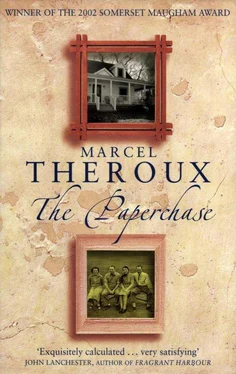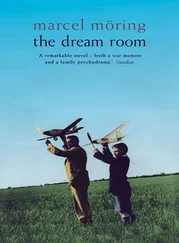Fernshaw often talked of his Prize Ring days, though I calculated that he hadn’t had above two bareknuckle fights in his career (to his credit, he won them both). He always maintained that a man who had boxed only wearing gloves would never be more than an amateur, but he disapproved strongly of brawling. He insisted on discipline in the ring, and would berate both boxers if a bout threatened to degenerate into ‘a rough unmeaning unscientific scramble’.
I well remember Dick Fernshaw, not less than sixty years old, interposing his spry frame when sparring threatened to become too warm. The bobbing fringe of red hair ringed his pate like a hedge round a ploughed field. ‘Never forget: in the midst of impetuosity remember coolness, my lads,’ he would say. ‘Be manly; seek no undue advantage. Science and pluck give advantage enough. Pluck! Science!’ Then, after a pause to restore calm, he would have them go at it again.
It was at Fernshaw’s school of arms in the autumn of 18— that I first met Abel Mundy. He was older than most of us, forty, florid-faced, with a distinctly military deportment. I knew at once that he had seen service in India, and surmised from the oakum and tar on his boots — and the ink on his cuffs — that he was now employed as a shipping clerk at one of the warehouses on the river.
It was some time before I could verify my hypotheses. Mundy was a quiet, some would say brooding man, of a formidable intensity, great physical strength, but few words. That first day, he was matched with another heavyweight, Dickinson, a solicitor and Blue, for light sparring after the dumb-bell exercises. Dickinson was a more than capable boxer, and the two men finished amicably enough, but Mundy gave him a rough time of it. Fernshaw, without being partisan, urged Dickinson to counter when he was having the worst of it on the ropes. ‘Come on, lad. Don’t let him hang you. He’s older than I am.’
That day was memorable for more than just the arrival of Abel Mundy. Fernshaw had been dropping hints to me for some time about his intention of distilling the wisdom he had gained cultivating the physical sciences in a book. It was a harmless enough ambition, and I confess I egged him on to it, because I found his cherished convictions amusing. He held, for example, as many do, that Onanism drained fluid from the brain and weakened the nervous system. He counselled the wearing of undergarments fashioned from a single strip of cloth folded around the nether parts in Hindoo style. He drank neat vinegar to strengthen his digestion. He — and I would not believe this, had I not seen it myself — he preserved the parings after he had dressed his nails and ate them, in the belief that it restored vital energies. All this, and a good deal of no doubt sensible information concerning boxing and physical culture, was to be collected in Fernshaw’s volume. It was almost too much to hope that all of his wrong-headed snippets of wisdom would be gathered in one place for the edification and amusement of the general public, and many of Fernshaw’s students looked forward to its publication for reasons quite other than the ones he supposed.
After our exercise was over, and Fernshaw was preparing the hall for one of his private pupils, I happened to mention the subject of the book to him, in the hope of teasing more foolishness out of him.
‘Ah — Mr Holmes,’ said he. ‘I’m glad you mentioned this to me. I was discussing the slim volume, or pamphlet — as you know, I’m not ambitious concerning its size, but merely concerned to preserve, as it were, some of the axioms of pugilistical science — I was discussing it, as I say, with my wife, and it was her contention — where she thinks of these things I don’t know — that a favourable commendation from someone highly esteemed might further its cause. I thought naturally of you …’
‘My dear fellow,’ I began, ‘I’d be flattered.’
‘And wondered if you might show it to your brother.’
‘My brother?’
‘Seeing that he is in an illustrious and some might say unique position, I thought a recommendation from him would carry the most weight. Naturally, I don’t want to put him to any trouble, but it would be rendering me a service. If he could see his way to penning a few lines as a form of introduction to the work … Well, that’s as much as anyone could want.’
‘Certainly,’ I said. ‘Let me know when you have the finished draft and I’ll bring it to his attention.’
‘Much obliged to you, Mr Holmes. May I offer you in return a word of advice about your choice of undergarments?’
‘The deuce of the thing is I’m already late for a rather important engagement. I’m afraid it will have to wait until next Thursday.’
‘Until then, sir. Keep your guard up! Pluck, Holmes. Science!’
The last few words pursued me from the basement of the house and out into the warm twilight of Golden Square, while Abel Mundy looked on silently from one of the benches smoking a cheroot.
The truth of it was, I had no engagement, but I had found myself rather taken aback by Fernshaw’s request. As much as I thought his projected book a foolish undertaking, I couldn’t help but feel hurt that it was the commendation of my brother that he sought, rather than mine.
I lodged at that time in a set of rooms on Dover Street, where I had a bright drawing room that served me also as a studio. That evening, I remember, I did not return there immediately, but went from Fernshaw’s gymnasium to visit a young lady in Shepherd’s Market who worked as an artist’s model but who also submitted herself to the sexual attentions of wealthy men. After the knock-back of Fernshaw’s request, I wanted to restore my self-esteem with a vigorous rogering.
[NOTE by Damien March: The next two pages are just sub-Victorian pornography of the Pearl variety, but less effectively done. Since this section doesn’t further the plot of the story or do my late uncle much credit I’ve left it out.]
ABEL MUNDY came regularly to Fernshaw’s gymnasium and was soon among the group — which did not include myself — who contested amateur prizes at tournaments. Despite his relatively advanced years, he invariably won and earned something of a reputation for his strength and ringcraft.
It was an unspoken rule among the men who trained with Dick Fernshaw that the subject of our occupations was never mentioned. In a city where too much store was set by a man’s work, his income, his place of residence, it was refreshing to consort with fellow humans on terms simply human.
It was another year before I deepened my acquaintance with Abel Mundy in circumstances that would have repercussions for both of us.
*
AN ERRAND had taken me far out of my usual haunts, east of London Bridge to the wharves on the south bank of the river. The scents of a hundred nations mingled here: spices, sugar, exotic banana-fruits from the West Indies, tea from the East, chocolate beans from Java and Sumatra, and bolts of Calico were stacked in the warehouses that fronted the busy Thames.
It was past five, and the flood of commerce had slowed to a trickle. A few clerks lingered over their account books, but ships lately in waited until the morning to be unloaded. A lamplighter was working his way along Tooley Street, confounding the darkness with a twinkling yellow flame.
Some distance away, a man emerged from a doorway, glanced upwards to ascertain the clemency of the weather, pulled his greatcoat around him, adjusted the hat on his head, and made his way along the pavement with a broad-backed, hunched-over walk that gave me his identity as certainly as his face did, lowered and concentrating as if examining the paving stones for fallen pennies.
‘Abel Mundy,’ I said, and on hearing his name he started upwards with a hunted expression and peered at me through the darkness.
Читать дальше












